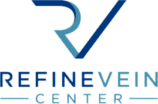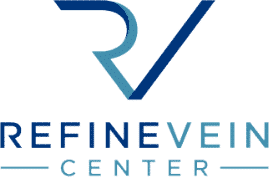Enlarged and twisting veins at the skin’s surface, known as varicose veins, can be treated after the correct diagnosis. Most insurance companies cover medically necessary vein treatments. Your job is to know which treatment is right for you.
Thermal Ablation
The two types of thermal ablation involve a process of closing veins and rerouting blood flow and circulation through healthier veins and are known as endovenous laser ablation and radiofrequency ablation. These treatments are FDA-approved and take as much as a half hour to complete. The success rate is extremely high at more than 90%, and there is no substantial recovery time required.
Endovenous Laser Ablation (EVLA)
Endovenous laser ablation (EVLA) involves the insertion of an FDA-approved laser fiber into an abnormal vein. Then, laser energy shuts the vein to reroute blood flow through a healthier one.
Radiofrequency Ablation (RFA)
Radiofrequency ablation (RFA) involves the insertion of an FDA-approved catheter into an abnormal vein. Then, radiofrequency energy shuts the vein (as with EVLA) so that blood can be rerouted to healthier veins.
Varithena Treatment
Varithena® (polidocanol injectable foam) is an FDA-approved injection for abnormal veins. The procedure is performed with ultrasound guidance and typically involves only one treatment. If the amount or size of your veins is larger, additional treatments might be necessary.
Ultrasound Guided Sclerotherapy
Ultrasound-guided Sclerotherapy, or endovenous chemical ablation, consists of injecting sclerosant into abnormal veins and permanently closing them, thus rerouting blood flow to healthier veins. This ablation procedure is done with ultrasound guidance, making it safer and more efficient.
Contact our office at (615) 716-8346 to schedule an appointment today.



